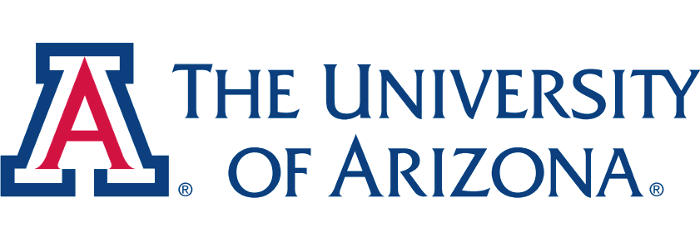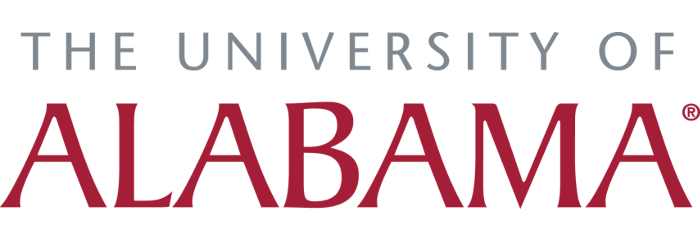An online nutrition degree at the bachelor's level provides training in food science, health, and wellness, preparing students for careers as nutritionists, dietitians, or health educators. Covering topics like human metabolism and dietary planning, nutrition degrees online often include virtual labs and internships. Graduates can pursue roles in healthcare, public health, or the food industry, benefiting from strong job growth in the wellness and disease prevention sectors.
Key Takeaways:
- Eastern Michigan University leads with median graduate earnings of $54,944 for its Bachelor and Master of Science in Dietetics.
- American Public University System impresses with a retention rate of 90%.
- Arizona State University has 50,637 online students currently enrolled.
Backed by data from the Integrated Postsecondary Education Data System (IPEDS) and manual audits for accuracy, our list shows the most popular nutrition degrees online. For detailed information, please refer to our methodology.
List Of Accredited Online Nutrition Schools
| School | Online Enrollment | Annual Tuition |
|---|---|---|
| Arizona State University, Online | $24,780 | |
| American Public University System | 39,206 | $10,500 |
| Purdue Global | 33,392 | $11,130 |
| University of Arizona | 6,616 | $15,750 |
| Weber State University | 4,617 | $8,970 |
| University of Alabama | 3,306 | $11,550 |
| Eastern Michigan University | 1,967 | $15,510 |
| Kansas State University | 1,206 | $27,816 |
| The New School | 188 | $56,386 |
| Cedar Crest College | 53 | $14,250 |
| University of Northern Colorado | 440 | $26,204 |
2025 Best Online Nutrition Degrees
- Online Enrollment: 50,637 enrolled
- Annual Tuition: $24,780
- Locations: Tempe (AZ) (and 4 others)
Online degree:
Why we like them: ASU Online hosts over 50,000 online students, which means it's in the top 1% of U.S. universities for popularity among distance learners at the undergraduate level. Its online nutrition program requires 120 credit hours, and it's structured to fit various career aspirations with distinct focus areas, such as Community Nutrition, Food Service Operations, and Pre-Dietetics. We are also highly impressed by ASU's recommendation rate of 90%, reinforcing the positive student experiences and outcomes.
- Online Enrollment: 39,206 enrolled
- Annual Tuition: $10,500
- Location: Charles Town (WV)
Online degree:
Why we like them: APUS has an impressive 39,206 online students, positioning it in the top 1% of universities for online enrollment. This distinction indicates a well-established online learning environment you can rely on. The online Bachelor of Science in Public Health - Nutrition and Wellness at APUS is structured to provide an understanding of public health, nutrition, and wellness. The program requires 120 credits, and classes start monthly and range from 8 to 16 weeks in length. Moreover, it covers community health, nutrition, public health law, and critical analyses of the U.S. healthcare system.
- Online Enrollment: 33,392 enrolled
- Annual Tuition: $11,130
- Location: Indianapolis (IN)
Online degree:
Why we like them: Purdue Global's BS in Nutrition stands out by offering a Holistic Nutrition concentration, which meets the educational standards set by the National Association of Nutrition Professionals (NANP). Students can also prepare for industry-specific certifications like the Certified Dietary Manager (CDM) and ServSafe Food Manager. Additionally, the program includes an optional internship for real-world experience and professional skill development, which enhances your employability after graduation. Not only does Purdue Global host over 33,000 online students, it also has a fairly high recommendation rate of 75%.
- Online Enrollment: 6,616 enrolled
- Annual Tuition: $15,750
- Locations: Tucson (AZ) (and 1 other)
Online degree:
Why we like them: UA stands out due to its substantial online enrollment of 6,616 students, placing it among the top 4% of universities with the highest online student populations. This online presence indicates a well-established virtual learning environment where you can effectively engage with peers and faculty alike. Additionally, UA's exceptional retention rate of 86% places it in the top 13% nationwide. In this online bachelor's, you'll learn about nutrition, food science, and therapeutic diets, and specialize in dietetics or nutrition. Notably, the Dietetics emphasis is accredited by ACEND and qualifies students for dietetic internships necessary for becoming a registered dietitian.
- Online Enrollment: 4,617 enrolled
- Annual Tuition: $8,970
- Location: Ogden (UT)
Online degree:
Why we like them: WSU’s online bachelor’s in nutrition education offers two concentrations: integrative nutrition and sports nutrition. The program equips students with diverse skills in diet design, human nutrition, fitness, and current health issues, preparing them for careers in nutrition or further graduate studies. With flexible online options and a focus on practical knowledge, graduates can pursue careers in health promotion, athletic training, or continue towards becoming a registered dietitian nutritionist (RDN). Plus, we commend WSU's recommendation rate of 87%, indicating positive firsthand experiences.
- Online Enrollment: 3,306 enrolled
- Annual Tuition: $11,550
- Location: Tuscaloosa (AL)
Online degree:
Why we like them: UA hosts 3,306 online students, placing it among the top 14% of universities with the largest online student populations. Additionally, the program excels in retention rates, with an impressive 87% of students continuing their studies. Another standout metric is the high median earnings of graduates for nutrition degrees, at $52,227, placing UA graduates in the top 27%, which indicates strong employment outcomes. This nutrition program requires coursework that can meet licensure requirements, which is crucial for students seeking professional certification in nutrition.
- Online Enrollment: 1,967 enrolled
- Annual Tuition: $15,510
- Location: Ypsilanti (MI)
Online degree:
Why we like them: EMU's median earnings figure for graduates of the dietetics is $54,944, situating it in the top 15% nationally for this metric. This indicates strong post-graduation outcomes, adding significant value to your potential investment in the program. We also like that the program provides both coursework and 1,040 hours of supervised practice, preparing students to sit for the national registered dietitian (RD) exam. It's designed for those pursuing careers in clinical, community, or food service dietetics. Plus, it meets the requirements for licensure or certification in most states.
- Online Enrollment: 1,206 enrolled
- Annual Tuition: $27,816
- Location: Manhattan (KS)
Online degree:
Why we like them: K-State offers an online nutrition degree for students who want to learn more about health and food science. It covers coursework that's customizable to your career goals. An example of a core course in this program includes Integrative Health and Human Sciences, and students can choose from other classes in the field, such as Personal Wellness, Pathophysiology and Clinical Evaluation, and Care and Prevention of Athletic Injuries. K-State also offers a dietetics degree online as well. This program is ACEND-accredited, so graduates are eligible to sit for the registered dietitian credentialing exam
- Online Enrollment: 188 enrolled
- Annual Tuition: $56,386
- Location: New York (NY)
Online degree:
Why we like them: The New School offers an interdisciplinary food studies program that covers food policy, global food security, and public health issues, to name a few areas. TNS's collaboration with the International Culinary Center allows graduates from selected programs to earn up to 22 credits toward their degree, a significant advantage for students looking to continue their education without redundancy. This approach ensures that you're well-equipped for various career paths in the food sector, including policy research, food marketing, and culinary journalism.
- Online Enrollment: 53 enrolled
- Annual Tuition: $14,250
- Location: Allentown (PA)
Online degree:
Why we like them: Cedar Crest offers an accredited nutrition program that meets ACEND standards, making it a solid choice for those aiming to pursue the Registered Dietitian Nutritionist (RDN) credential. The program includes both on-site and distance learning options, requiring students to attend two residential institutes. Courses delve into clinical, community, and behavioral health nutrition, aligning with the latest ACEND standards. Graduates have an impressive pass rate of 93.75% for the Registration Examination for Dietitians, surpassing both the ACEND standard and national average.
- Online Enrollment: 440 enrolled
- Annual Tuition: $26,204
- Location: Greeley (CO)
Online degree:
Why we like them: UNC students can pursue an online dietetics degree program tailored toward students aspiring to pursue dietetic registration and licensure across multiple states. Sample coursework from the program includes Nutrition in the Life Cycle, Introduction to Foods, Medical Nutrition Intervention, and Community Nutrition. The condensed timeline of five terms, equivalent to 18 months, for completing the online bachelor's degree in nutrition allows you to attain your degree and enter the workforce more quickly compared to traditional four-year programs. Additionally, the accelerated format can save you time and money.
Overview of Online Nutrition Bachelor's Degrees
Online nutrition degrees offer an interdisciplinary education in the vast field of food science. In addition to learning about how diet affects health and wellness, students can study the social, political, and cultural aspects that influence access to food. Depending on their interests and the level of education they're pursuing, individuals enrolled in a nutrition degree may explore how diet and nutrition affect disease management, influence public health considerations, or shape community health standards.
Graduates of higher education in nutrition can find careers in healthcare, research, government, and education, to name a few areas. With online certification and the required level of education and experience, they may also be prepared to open their own practice or work as health consultants for individual clients.
What Is a Bachelor's in Nutrition Degree?
Bachelor's degrees in nutrition prepare students to help clients become healthier and happier through nutrition counseling and dietary changes. Graduates should gain the core skills needed to educate clients and the general public on nutritional needs at every stage of life. They'll learn to assess patients' nutritional status and help clients achieve optimal health. Programs should also cover how health conditions, age, sex, lifestyle, genetics, and culture affect health and nutrition.
Students enrolled in a bachelor's level dietetics program gain a foundational grounding in wellness and nutrition while also taking STEM, social science, and humanities classes. A Bachelor of Science in Nutrition equips students with the necessary skills to apply for nutrition jobs or advance their education.
Degree & Admission Requirements
A Bachelor of Science in Nutrition typically requires around 120 credits to graduate and takes four years to complete when enrolled full time. Students take general education classes in humanities, liberal arts, math, and science, with required nutrition classes. Programs also usually include labs in food science and chemistry. Many bachelor's programs also require that students complete a capstone project to graduate — typically in the form of a review paper on a topic of their choosing. Some schools, however, may require an internship or some field experience.
You'll need a high school diploma or GED to apply for online college. Some colleges may require a GPA of between 2.5 to 3.0 or higher, although many online colleges do not have GPA requirements. SAT and ACT scores are also required less often now, especially for adult students returning to education.
Students should start applying for school about 6-12 months before they plan on enrolling. For most colleges on a regular admissions schedule, applications are due sometime in the fall or winter of the year before the program starts. Many online schools accept applications year-round and offer start dates throughout the year.
Next Steps
A Master's Degree in Nutrition
An online master's degree in nutrition may include both general and specialized options. Students enrolled in the former complete advanced coursework in health science topics and also strive to develop their research skills. By contrast, those pursuing a specialized graduate program focus on a particular area, such as public health, sports dietetics, or pediatric nutrition. Both specialized and general programs can be completed in two years of full-time study.
Prospective students should note that a master's in nutrition will soon be required to work as a registered dietitian nutritionist.
Doctoral Degree in Nutrition
Like other online doctoral programs at this level, a nutrition doctorate trains students to contribute original knowledge in their field. Individuals must take classes in advanced food science topics, pass exams, and complete a dissertation to earn their nutrition doctorate. This degree may be a good option for those who want to conduct original research in food science, engage with the scientific community, or teach at the post-secondary level. However, prospective students should note that graduate study at this level is challenging, and doctorates may take several years to complete.
Nutrition Program Courses
Aside from general education classes, nutrition majors will also need a strong foundation in health science and diet. Students will take science classes in biology, chemistry, and other areas to learn how the human body uses food at a cellular level. Core nutrition classes will cover dietary needs and how nutrition impacts health and well-being. Many programs also require coursework on nutrition and culture to help students understand the role food plays in our lives and social relationships.
Below are some common classes for nutrition majors:
Food Science
Food Science courses cover the basic scientific principles behind food safety, preparation, production, ingredient interaction, and food preservation. These classes often include a lab.
Community Nutrition
Students enrolled in this course learn how different social and cultural groups interact with food. This class is designed to give individuals an understanding of how religious beliefs, economic opportunities, and societal values shape individual diets and also determine what different communities see as acceptable forms of nutrition.
Medical Nutrition
Medical Nutrition includes information on therapeutic nutritional care for different types of medical conditions and in clinical settings. This class might cover nutritional needs for obesity, health conditions requiring a feeding tube, and parenteral feeding, which provides nutrients through the veins.
Management of Food Service Systems
Often listed as an elective, students who take this class explore food delivery in various institutional settings. Most versions of this course incorporate labs in which students observe how meals are prepared in a full-scale kitchen.
Nutritional Counseling
This course covers how to provide clients with dietary advice. Students explore how to work with individuals who have different nutritional needs, including those with eating disorders or chronic diseases such as diabetes. Students in this class learn to develop meal plans and track clients' progress toward achieving specific health goals.
Nutrition Concentrations To Choose From
Concentrations allow students to focus their education in particular areas of nutrition and food science. They are often opportunities for individuals to explore subdisciplines and gain the necessary knowledge to pursue a career path that interests them. Below is a list of some common concentration options for students enrolled in a nutrition program.
Dietetics
The dietetics concentration may be suitable for individuals who eventually want to work as licensed dieticians. It features a heavy emphasis on nutrition and biochemistry courses. It is designed to give students a robust, scientific understanding of how food affects health, disease prevention, energy, and other aspects of human health.
Food and Nutrition Entrepreneurship
This concentration blends nutritional science with business concepts. Students learn how to manage food delivery systems in different settings and can graduate prepared for careers in the hospitality industry. The food and nutrition entrepreneurship concentration may also be ideal for those who want to start their own practice or nutrition consultancy.
Nutrition and Wellness
Students who focus on nutrition and wellness are prepared for entry-level positions in education, healthcare, and government industries. They study multiple subjects, including public health, genetics, and sports nutrition. Given that this concentration provides broad training in food science, it may be a useful option for students pursuing a master's or doctoral degree.
Sports Nutrition
Individuals who aspire to work with athletes or as personal trainers may pursue a sports nutrition concentration. This track focuses on how diet can influence energy, physical activity, and human physiology. In addition to studying evidence-based strategies in clinical nutrition, students may also learn about the sports economy, as well as how to counsel clients and work with medical professionals in the field. This concentration typically prepares students to become a Certified Sports Nutritionist Coach.
Unsure if a nutrition degree is right for you? Check out similar degrees, such as the best online holistic medicine degree or the top online biology programs.
What Can You Do With a Bachelor's in Nutrition Degree?
Before students choose a degree, it's important to consider factors like career pathways for nutrition majors, licensure options, and personal interests to determine if a nutrition degree is right for them. After completing a bachelor's in nutrition, students typically continue their education through a master's or doctoral program, prepare for certification, or enter the workforce. Graduate school offers the opportunity to pursue a specialization, conduct research, and qualify for more senior positions in the field. A bachelor's in nutrition can also open the door to jobs in healthcare, public health, education, and hospitality.
What's the Difference Between a Dietician and a Nutritionist?
Nutritionists and dieticians both work with patients to improve health through diet. However, while nutritionists can practice without certification, dieticians must hold a master's degree and pass a test to get the RD or RDN credential. They can also work in more clinical settings and are licensed to provide more services than nutritionists without the RDN credential.
Potential Careers for Nutrition Degrees
Many nutrition majors combine their passion for food and wellness with interpersonal skills in nutrition counseling or medical nutrition careers. According to the Bureau of Labor Statistics (), 27% of nutritionists and dietitians work in hospitals. Nutrition experts also work in gyms, private practices, doctor's offices, government organizations, and food services.
Common career paths for nutrition majors include the following:
- Dietetic technicians help with food service and nutrition programs, plan and make balanced meals, educate clients, or provide counseling under the supervision of an RDN.
- Health educators often work in schools or community services to teach the public about nutrition and health, develop and implement community education programs, and track how effective those programs are.
- Food science technicians specialize in food safety and quality testing, including shelf-life studies, food modifications (like developing low-fat versions of foods), and conducting consumer panels.
- Nutritionists and dietitians work directly with patients and clients to educate them on their nutritional needs, develop food plans and intervention strategies, and treat medical issues with dietary changes.
See our guide on how to become a nutritionist for more information on licensure and certification.
Certification and Licensure
Certification and licensure can show that an individual is a well-trained and capable nutritionist, and can help improve their job prospects. While requirements vary by state — with some making board licensure or third-party certification mandatory and others having no prerequisites — nutritionists typically need to have a postsecondary degree, log a number of supervised hours, and pass an exam to earn these qualifications. Students and professionals have a range of nutrition certification options depending on their educational level and area of interest. Below is a list of the most common types.
— This certification is open to individuals with an undergraduate or advanced degree in nutrition. Applicants must complete an online course and pass the CCN exam to be certified. In some states, they must also complete a number of clinical hours. Recertification requires completing continuing education credits.
— Students need a postgraduate nutrition or medical degree to meet the academic requirements for this advanced certification. Depending on their educational background, they must also complete 1,000 supervised hours, a dietetic internship, or case studies in nutrition. All applicants must pass an exam to become a CNS.
— Aspiring RDs need a minimum bachelor's degree to qualify for the examination. There are several pathways to earn this qualification, including completing a Dietetics Internship, Didactic Program in Dietetics, or 1,000 supervised hours. RDs pay a yearly fee to maintain their credential.
Is an Online Nutrition Degree Worth It?
Nutrition degrees can pay off in the long term for individuals who want to work in the food science industry. However, prospective students should also evaluate their personal circumstances, financial position, and other commitments — as these factors can also influence whether a nutrition education is worth it. The value of this degree will ultimately vary from student to student, but individuals may consider the following potential pros and cons before deciding to enroll in a nutrition program.
Potential Advantages
-
Nutritionists are typically well-compensated. Compared to the U.S. median annual salary of $46,310, these professionals earn a , with the top 10% earning approximately $95,130 a year, according to the BLS.
-
Nutrition degrees train students to identify and care for people's needs. For individuals who enjoy working with and helping others, a nutrition degree can lead to a .
-
A nutrition education may be a suitable option for self-employment. While dieticians work for hospitals or schools, they can also open private practices that serve individual clients. This degree may therefore be useful to those who want the business aptitude and food science training to work for themselves.
Potential Disadvantages
-
A nutrition degree alone is insufficient to advance a career in this field. For instance, many employers may expect these professionals to be licensed for higher-level positions, and nutritionists must take continuing education credits to maintain their credentials to remain competitive. Explore our list of affordable online master's degrees in nutrition to plan ahead and stay within budget.
-
Becoming a successful dietician takes time and effort. Students with a nutrition education often need to gain several years of experience before they can command a high salary, start their own practice, or work with a pool of dedicated clients. This is unlike other positions — particularly in tech and business sectors — where graduates can find high-paying, entry-level jobs soon after graduation.
Is a Nutrition Degree a Good Fit For Me?
Nutrition degrees can be an ideal choice for students who enjoy helping others meet their health and fitness goals. For instance, individuals who enjoy cooperation are as nutritionists and dietitians. Furthermore, employers hiring nutritionists commonly seek empathetic problem solvers with the ability to discern people's needs and challenges and help them overcome them through evidence-based strategies. Overall, students who see themselves as creative, collaborative individuals who care about the health of others may find that a nutrition education suits their personality and interests.
Employers hiring nutritionists seek empathetic problem-solvers who can discern people's needs and challenges and help them overcome them through evidence-based strategies.
If you're looking to brush up on some basic information about nutrition, an online course or two can be worth it. However, an bachelor's program is usually a better option for a career in nutrition.
Bachelor's degree programs give students an in-depth understanding of nutritional needs and teach them to consider a broad range of factors when working with clients, including age, sex, health conditions, family health history, genetics, and culture. Bachelor's students also gain a strong foundation in science that will benefit them in their careers and further education.
FAQs About Bachelor's in Nutrition Programs
Can I Get a Nutrition Degree Online?
Yes, many colleges and universities offer online nutrition degrees. While some programs are fully remote, those that prepare students for certification may have in-person practicum requirements or expect students to visit campus to complete lab work.
Is a Nutrition Degree Hard?
Earning a bachelor's degree in nutrition takes hard work and dedication. Whether or not it is a difficult degree depends on personal interests and skills. Some students may struggle with the science and healthcare-related classes in the program. It may be more difficult for students who excel in liberal arts classes rather than biology and chemistry.
How Much Does a Nutrition Degree Cost?
The is $8,324 for in-state students attending a public institution. By comparison, out-of-state students at private schools pay a median tuition of $39,760. Distance learners can typically save on additional costs such as relocation, transport, and on-campus housing.
Are Nutritionists in High Demand?
The BLS projects faster-than-average job growth for nutritionists and dieticians. Compared to the national average of 3%, these positions are expected to through 2032.
What Else Should You Consider?
One of the most important things to consider when choosing an online nutrition degree is accreditation. Every school on our site is accredited, which means an approved agency continuously reviews it to ensure it meets academic standards.
Choosing the right program for your career goals is also important. While most nutrition degrees offer an in-depth education in the field, dietetics programs are specifically designed for students who want to become registered dieticians (RDs) or RDNs, or gain other types of certification.
To earn an RDN credential, students must earn a bachelor's or master's degree in dietetics from a program accredited by ACEND. Because RDNs also need a master's degree in nutrition or another field to get certified, students who choose a bachelor's program without ACEND accreditation can still satisfy that requirement later on.
Another consideration is whether a bachelor's in nutrition is right for you. Jobs in nutrition are a good fit for people who are interested in health, wellness, and diet. However, similar programs, like health education degrees or exercise science degrees, might be a better fit, depending on what you want to do after college.
Additional Resources
Students can explore the following resources for supplementary information on nutrition degrees, certification, and career options.
- — This is the premier organization for licensed practitioners and students. Founded in 1917, it publishes research, provides health education resources, and encourages professional advancement in the field of nutrition.
- — ASN seeks to build trust in food science by providing scientific, evidence-based knowledge on wellness-related topics. It also provides online courses, webinars, and networking opportunities to students interested in nutrition.
- — This organization focuses on holistic nutrition. This body offers certification, publishes research, and hosts an annual conference for members. Students who join can also benefit from mentorship opportunities.
- — This international organization of nutritionists advocates for healthy lifestyles through research, policy engagement, and education. Student members can join committees, attend conferences, and develop their professional network.
Student Reviews of Online Nutrition Programs
Everything was done remotely including group projects. Attending school at Purdue Global online was a great way to interweave my education with my other commitments. The instructors were very thorough and fair. I’m very happy with the school and I can’t wait to graduate!
Review Date: 1/8/2024
Would Recommend: Yes
Helpful for Career: Yes
After much research I made the decision to apply at Purdue University Global for my personal needs. The degree in nutrition I was looking for plus the total online environment so that I could make it work around my busy life (family, kids, work). I loved the student services, library, writing center, tutoring, etc, all of that was more than I had hoped for. I personally had a great advisor, with fantastic communication level and always working to help me get through in the most cost effective way.... Read More
Review Date: 5/31/2022
Would Recommend: Yes
Helpful for Career: No
The school of Heath sciences has been very healthful and informative. I have learned so much, and very excited to practice in this field. I also look to increase my educational level with Purdue University Global. The break down of the curriculum is very helpful.
Review Date: 10/1/2021
Would Recommend: Yes
Helpful for Career: No
From enrollment to my final term, PUG has been so helpful every step of the way. My advisors were so informative, my professors were always accessible, and the course work was challenging and enlightening. As a 40 year-old returning student, I was nervous. As I receive my Bachelors this June, my advisor played a pivotal role in my decision to pursue my Masters. I looked no further than Purdue University Global to continue my education!
Review Date: 5/29/2021
Would Recommend: Yes
Helpful for Career: No
K-State offers quality education with a rigorous curriculum that prepared me for the job market. I was employed immediately after completing my degree and have become a very resourceful individual. The advising and mentorship l received from my department instructors was very specific to what l was seeking. I would recommend anyone to k-state any day.
Review Date: 1/17/2017
Would Recommend: Yes
Helpful for Career: Yes
I read a lot of reviews on here for fun. I noticed there are no reviews for the College of Dietetics and Nutrition which is a disservice to the staff who built that program. Keiser may not be the best school for nursing but the staff in the College of Dietetics and Nutrition at Pembroke Pines is a 5 star team. Many opportunities have opened due to the staff here and they have poured a lot into my future. Dr. Hernandez is a fantastic professor who truly cares about the progression of her students.... Read More
Review Date: 5/5/2021
Would Recommend: No
Helpful for Career: No
Getting a nutrition degree at ASU was one of the best decisions I made in my adult life! All of the professors I had at ASU were insightful, intelligent, and genuinely loved their careers. I was also very impressed with their knowledge of the topic. Most teachers I had at ASU were experts in the topics they instructed and had a love for teaching. I will say, the Nutrition (Dietetics) program was very geared towards students who wanted to take the traditional path. Finish their DPD classes and go... Read More
Review Date: 5/14/2019
Would Recommend: Yes
Helpful for Career: Yes
University of Houston is a great school that is continuously expanding. It is getting better each year, by remodeling and accommodating to students' needs. Faculty are wonderful, many are well educated, enjoy what they teach, and want you to succeed. Financial services are great, and it is possible to get a lot of financial aid to help pay for tuition.
Review Date: 5/11/2019
Would Recommend: Yes
Helpful for Career: Yes
Michigan State University was an amazing experience. As a traditional agricultural school, science based programs here are of the highest quality. As an individual who is pursuing a career in healthcare, I was extremely pleased with the opportunities I was provided at Michigan State University.
Review Date: 2/25/2017
Would Recommend: Yes
Helpful for Career: Yes
The whole process from applying, to signing up for classes, to taking classes, has been such a great and easy process. Some classes were more challenging than others have been, but that was to be expected since the class was anatomy and physiology 1. I have enjoyed my time at Purdue global, and I will truly miss being in the classes that I have been part of.
Review Date: 7/8/2023
Would Recommend: Yes
Helpful for Career: Yes
Overall I think this is a great school but there as some downfalls. For one, the campus is literally surrounded by low income housing and this wouldn’t be an issue, except for the fact that most of the homes look trashy and many of those owners walk the campus sidewalks and roam the parking lots. There have been many car break ins. One frustrating part is that there is not a lot of parking in the center of campus. Of course you can park out by the ball fields, in the elementary school parking lot... Read More
Review Date: 5/18/2022
Would Recommend: Yes
Helpful for Career: No
Texas Tech University has been an absolute dream for me. The professors truly care about their students and advisors go out of their way to calm your nerves when your schedule isn't adding up. Lubbock is an extremely well built college town. The residents of Lubbock are so concerned with creating job opportunities and helping students succeed in life. I cannot say enough positive things about TTU, I never want to leave!
Review Date: 9/19/2019
Would Recommend: Yes
Helpful for Career: No
The University of Arizona was definitely the college for me. As a kid, I grew up in Phoenix, Arizona and always expected to go to Arizona State University, especially since that was where my father went. However, as soon as I stepped foot onto the University of Arizona campus, I knew that I was going to be going to school there. The atmosphere was so fresh and friendly; we took a tour of the entire school and it seemed endless. The campus just seemed like a vast pool of opportunity, adventure, and... Read More
Review Date: 3/4/2017
Would Recommend: Yes
Helpful for Career: No
I love Cal Poly. The only thing about it is that it is very hard to get classes you need early on. A lot of the classes are too impacted and some people have a hard time getting the required units to be a full time student, but your career counselor can help you with that.
Review Date: 6/28/2016
Would Recommend: Yes
Helpful for Career: No
I attended Purdue University because it was very close to home and many people in my family attended in the past. My degree was very science-based, so my courses in Biology, Microbiology, Chemistry, Organic Chemistry, and Biochemistry were all in very big lecture halls. Although these were big classrooms, the professors still tried their best to answer individual student questions. In addition, these big classes came with a ton of extra resources including multiple teaching assistants, recitations... Read More
Review Date: 9/29/2019
Would Recommend: Yes
Helpful for Career: No
The University was very difficult to navigate due to their poor advising staff. The advising department was poor and made many mistakes. They often didn't solve the mistakes made they just asked for me to continue taking classes. I earned my degree but unfortunately do not feel much pride for my school. I wish I had a different experience because of all the work I put into school. I looked forward to the my college experience and found the support system unfortunate. Other than the support the course... Read More
Review Date: 10/27/2019
Would Recommend: Yes
Helpful for Career: Yes
I had an excellent experience in the Nutrition department at the University of Rhode Island. Cathy English (the academic advisor in the department) is a wealth of knowledge and always makes herself available for students by responding promptly to spur of the moment email questions, meeting requests, and drop-ins. The vast majority of the other professors in the department are a pleasure to work with, understanding and accommodating of student feedback, dedicated to providing a positive experience,... Read More
Review Date: 7/30/2018
Would Recommend: Yes
Helpful for Career: Yes
The College of Health Solutions takes many steps in preparing their students for their next steps into the professional work place. I had various internship opportunites, a variety of volunteer opportunites, and labs and classes that provided first-hand experience and a wealth of knowledge. Arizona State University as a whole also provides many helping resources and opportunites for students to be successful while in school and upon graduating.
Review Date: 9/30/2018
Would Recommend: Yes
Helpful for Career: Yes
Attending Virginia Tech was the best decision I ever made. The campus and surrounding town have a wonderful atmosphere with professors and students that truly care about one another. I had excellent professors that have prepared me well to pursue a graduate degree. I would highly recommend it to anyone.
Review Date: 2/14/2017
Would Recommend: Yes
Helpful for Career: No
I love the support of the staff as well as the competitiveness of the education I will be receiving. I only wish that the university provided more financial aid for the program that I am in.
Review Date: 5/26/2015
Would Recommend: Yes
Helpful for Career: No












